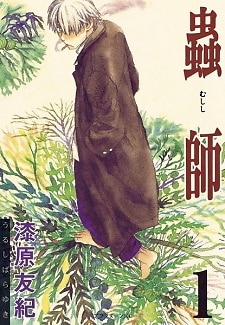Alternative TitlesSynonyms: Mushi-shi Japanese: 蟲師 More titlesInformationType: Manga
Volumes: 10
Chapters: 50
Status: Finished
Published: Oct 8, 1999 to Aug 25, 2008
Demographic:
Seinen
Serialization:
Afternoon Authors:
Urushibara, Yuki (Story & Art) Statistics Ranked: #602 2 based on the top manga page. Please note that 'R18+' titles are excluded. Popularity: #179
Members: 88,038
Favorites: 2,940 Available AtResources | Recommendations
|














































